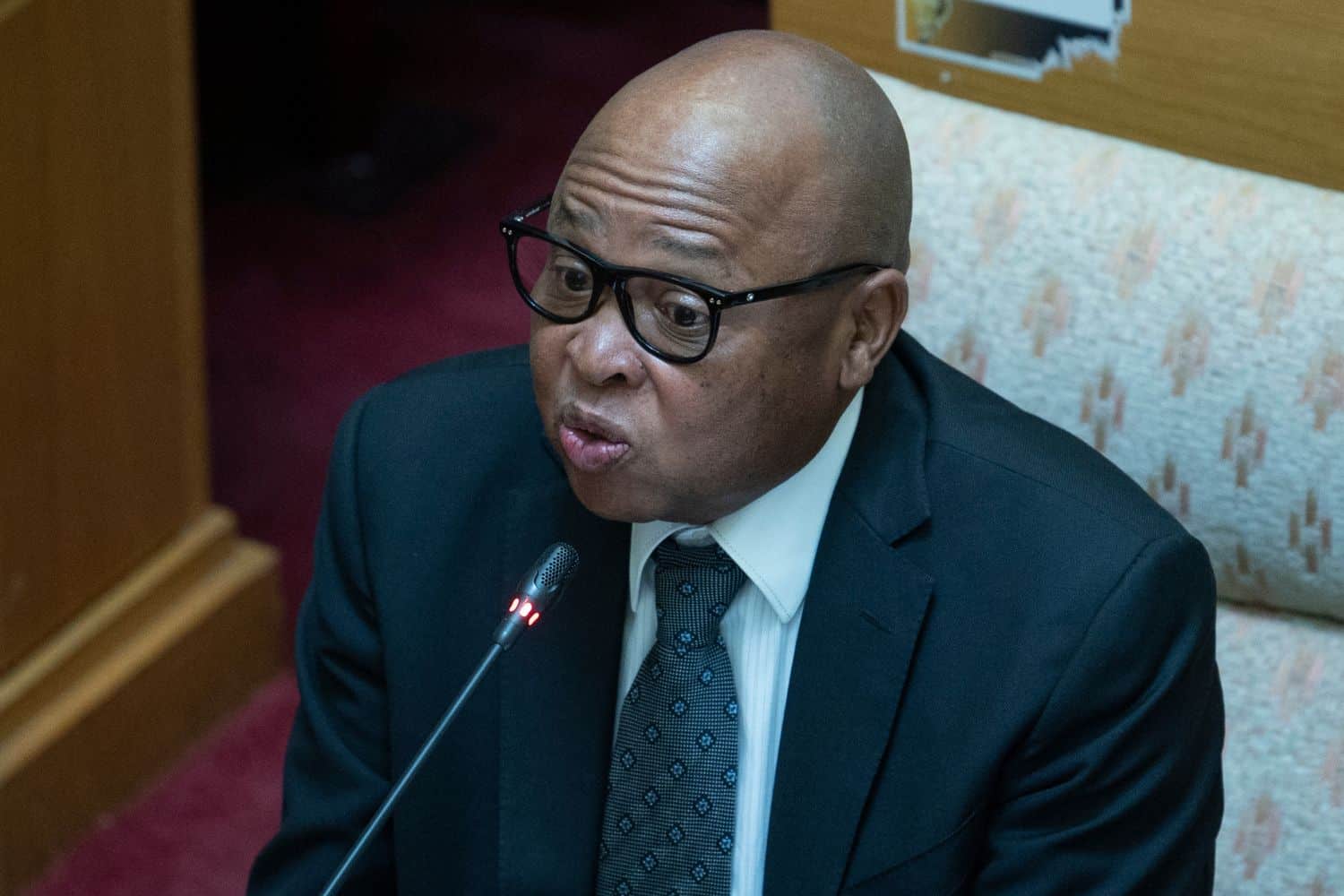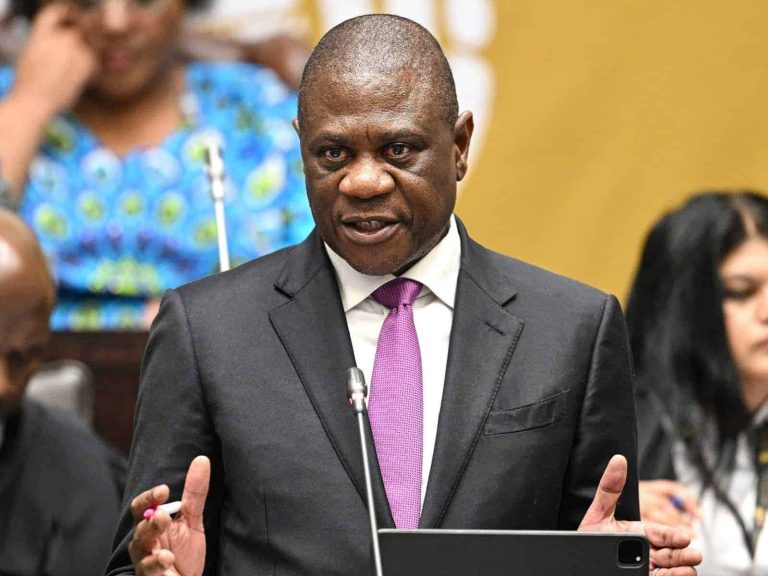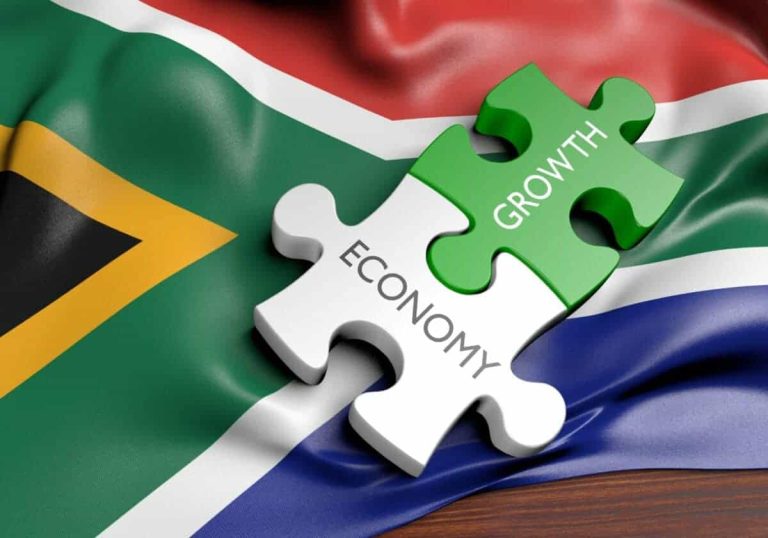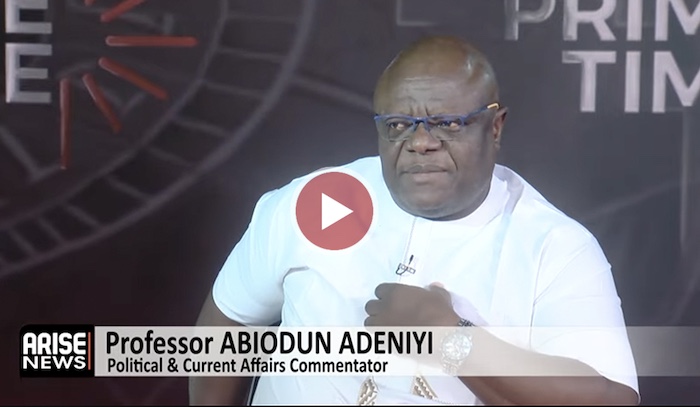
Deputy Police Minister Cassel Mathale has come to the defence of the South African Police Service (Saps) amid heavy criticism regarding possible criminality within the institution.
Mathale testified before Parliament’s ad hoc committee inquiry in Cape Town on Tuesday.
The inquiry is investigating claims by KwaZulu-Natal (KZN) police commissioner Nhlanhla Mkhwanazi that politicians and senior police officials have interfered in law enforcement operations and colluded with criminal syndicates.
Mathale disputes factions in Saps
During his testimony, Mathale told the committee that he isn’t aware of any factionalism within the police, though he acknowledged the possible presence of “rogue elements”.
The deputy minister stressed that many officers serve with integrity, highlighting that challenges within the police did not mean the organisation is in “disarray”.
“It’s intact, and it’s able to carry out its responsibilities,” Mathale said.
“The individuals that create problems in Saps in whatever form and shape, they remain individuals. They are not reflective of the organ called the South African police.”
ALSO READ: Mkhwanazi’s media briefing could have been avoided, says Mathale
Mathale emphasised that removing “two or three” bad apples would not fix Saps, asserting that officers accused of colluding with criminals do not represent the broader police force, which has over 100 000 employees.
“Criminals themselves, by nature of how they work, will always want to tap into an institution that is meant to deal with them. They’ll want to outsmart the system.
“They’ll want to make sure the police don’t get them, and the only way to do so is to also devise strategies or tactics to get to understand what is happening within policing.”
He added that this makes it difficult to have a “100% insulated” police force.
“If this process assists us to clean the wrong elements, it doesn’t necessarily mean 20 or 30 years down the line we’ll not find ourselves seated in a situation where we are confronted with elements working with criminals to undermine the institution.”
Crime and resource challenges
Mathale agreed that crime levels in South Africa remain very high.
He highlighted that limited resources have hindered Saps’ ability to fight crime effectively.
“The number of police officers that we have today is less than what we had in 2010.
“So, over the years, people have been leaving because of old age [and] others resigning because there are other things they are pursuing, but we are not replenishing every year.”
READ MORE: Mkhwanazi told the public ‘something twisted’, Mchunu tells parliament
He noted that President Cyril Ramaphosa’s initiative to recruit 10 000 officers annually over the past three years has strengthened the force.
“It has never happened in the history of South Africa to train 10 000 police officers at one go.”
Mathale also highlighted ongoing shortages of personnel and vehicles at police stations.
Watch the ad hoc committee inquiry below:
Mathale later admitted he did not fully understand the differences between Mkhwanazi, National Police Commissioner Fannie Masemola, and suspended Deputy National Police Commissioner Shadrack Sibiya until the allegations that led to the ad hoc committee and the Madlanga commission emerged.
He pointed out that Police Minister Senzo Mchunu had attempted to mediate between the officials but was unsuccessful.
“It’s an unfortunate thing to have happened, but in an institution as big as Saps, the leadership must learn how to create a team. Teams don’t create themselves.”
Mathale defends role of deputy ministers
Mathale was also questioned by MPs about the necessity of having two deputy police ministers, given the financial implications.
He revealed that he still has not been granted any delegated authority despite a year passing since he was appointed with Deputy Minister Polly Boshielo.
However, this didn’t mean “we don’t need deputy ministers”.
Mathale maintained that deputy ministers add value to policing while also asserting that Saps can function even without delegated responsibilities.
“There is relevance to their creation, and as I said that Saps is not like other ministries. It is a huge department that is complex in how it is structured.”
He shrugged off concerns that taxpayers’ money is being wasted.
“I would be the happiest to have my responsibilities clearly defined, but we are not sitting idle, waiting to be given responsibilities. We are working as a team.”
READ MORE: Two deputy ministers’ offices rack up R14 million salary bill
Asked if one of the deputy ministers could have been appointed minister while Mchunu is on special leave, Mathale said the president exercised his “wisdom” in choosing acting Police Minister Firoz Cachalia.
“You can’t appoint somebody who doesn’t have executive authority to be head of the institution,” he added.
On whether Cachalia has delegated responsibilities since assuming office on 1 August, Mathale said the matter had been discussed recently.
“He will be able to delegate responsibilities.”
Mathale explained, when asked about his daily role, that his work is guided by a monthly programme.
“For next month already, I have a draft programme,” the deputy minister said, without giving further details.



